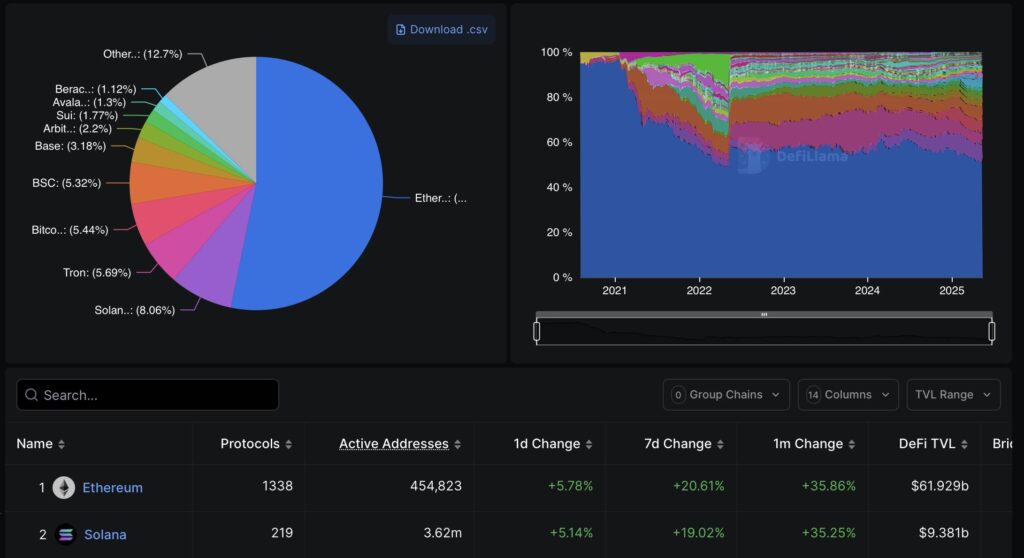The Ethereum Foundation has made headlines with the launch of a new security initiative aimed at bolstering the use of onchain technologies. Announced on May 14, this initiative is part of a broader strategy to enhance Ethereum’s position in the realm of programmable digital assets, further cementing its status as a cornerstone of the cryptocurrency ecosystem.
Leading the charge are Fredrik Svantes, a protocol security research lead, and Josh Stark from the Foundation’s management team, who will serve as co-chairs. They are joined by prominent contributors from the Ethereum community, including samczsun, Medhi Zerouali, and Zach Obront, all of whom will help guide the project under the banner of the Trillion Dollar Security Initiative.
“Achieving Trillion Dollar Security is only possible with the support of the broad Ethereum ecosystem,”
the Foundation stated, highlighting the collective effort required to strengthen security measures across various domains such as wallet security, smart contract integrity, and user experience improvements. With Ethereum’s dominant position in decentralized finance (DeFi)—holding around 50-60% of the total value locked across all blockchain networks since May 2022—this initiative aims to further secure nearly $80 billion currently staked on its platforms.
In light of recent challenges, including a drop in user traffic and the need for more engaging use cases, Ethereum’s ambitious Pectra upgrade has generated optimism among its community. This critical update introduces notable enhancements like the integration of external accounts as smart contracts and increased limits on staking, which have been positively received, with the price of Ethereum’s native token, ETH, surging over 43% since May 7. This momentum may indicate that Ethereum is poised for a potential resurgence in the competitive cryptocurrency landscape, as ongoing developments promise to reshape its future in the coming years.
Ethereum Foundation Launches Trillion Dollar Security Initiative
The Ethereum Foundation’s new initiative seeks to enhance security within the Ethereum ecosystem, impacting both developers and users alike. Here are the key points:
- Launch of the Trillion Dollar Security Initiative:
This initiative aims to boost the security of Ethereum, enhancing user experience, wallet security, and smart contract safety.
- Leadership and Contributors:
- Fredrik Svantes and Josh Stark will co-chair the initiative.
- Key contributors include samczsun, Medhi Zerouali, and Zach Obront.
- Focus Areas for Improvement:
- User experience.
- Wallet security.
- Smart contract safety.
- Infrastructure robustness.
- Significance of Security for Adoption:
A secure Ethereum can potentially increase broader adoption of onchain technologies and decentralized finance (DeFi).
- Current DeFi Landscape:
Ethereum controls 50-60% of the total value locked in DeFi, highlighting its significance in the blockchain space.
- Recent Network Upgrade – Pectra:
- Introduced three key improvements enhancing transaction capabilities.
- Resulted in a significant increase in ETH price post-upgrade (over 43% since May 7).
“Achieving Trillion Dollar Security is only possible with the support of the broad Ethereum ecosystem.” – Ethereum Foundation
The initiative not only holds potential for improved security but also reflects a growing commitment within the Ethereum community to enhance user trust and engagement in onchain financial activities.
The Trillion Dollar Security Initiative: A Game-Changer for Ethereum’s Ecosystem
The Ethereum Foundation’s recent launch of the Trillion Dollar Security Initiative represents a significant step toward bolstering the security landscape of onchain technologies. This initiative, co-chaired by experts like Fredrik Svantes and Josh Stark, aims to scrutinize and enhance core security aspects, including user experience and smart contract safety. This move comes at a time when Ethereum continues to lead the decentralized finance (DeFi) sector, boasting about 50-60% of total value locked across blockchains, despite recent challenges.
When compared to similar security initiatives launched by other blockchain networks, Ethereum’s approach appears particularly robust. For instance, while some environments rely heavily on community-driven audits, Ethereum’s organized structure that includes dedicated contributors such as samczsun and Medhi Zerouali provides a strong governance framework. This institutional backing could enhance its credibility and effectiveness in addressing security flaws. However, the initiative’s success hinges on widespread participation from the Ethereum ecosystem—something other blockchain projects have harnessed efficiently through community rewards and incentives.
Moreover, Ethereum faces disadvantages in competing narratives within the crypto community. Other chains, such as Solana, have gained traction through speed and lower costs, which can translate to a user-friendly experience that Ethereum has struggled with, particularly before its Pectra upgrade. The critical improvements that come from the Pectra upgrade offer Ethereum a recovery path, but translating this technical advancement into user trust will be imperative for the success of the security initiative.
This initiative stands to benefit various blockchain developers, investors, and users who prioritize security, potentially attracting a larger pool of conservative investors previously hesitant to commit significant capital. However, risks remain for platforms that rely on Ethereum’s infrastructure; if the initiative falters, they could bear the brunt of security breaches or user exodus resulting from diminished trust in Ethereum’s protocols.
As Ethereum continues to promote a narrative of security and resilience, active participation from the community, combined with technological improvements, will be essential in shaping its next steps in the competitive blockchain landscape.
















